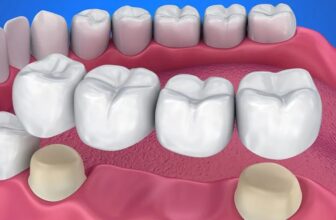
The journey of postpartum recovery is unique for every new mom, but unfortunately, it is often clouded by myths and misconceptions that can cause confusion and unnecessary stress. Society tends to glorify a quick recovery, expecting new moms to “bounce back” immediately after childbirth, which only adds pressure to an already challenging time. In reality, postpartum recovery is a gradual process that requires patience, proper care, and a lot of self-compassion.
Let’s take a closer look at some of the biggest myths surrounding postpartum recovery care and set the record straight.
Myth 1: Postpartum Recovery is Just About Physical Healing
Many new moms believe that postpartum recovery is solely about physical healing—mainly the return to pre-pregnancy shape. While it’s true that physical recovery from childbirth, such as healing from stitches, C-sections, and other bodily changes, is important, it’s not the full picture. Postpartum recovery also involves emotional, mental, and hormonal healing.
The adjustment to motherhood, the fluctuating hormones, and the inevitable changes in routine can take a toll on mental health. Postpartum depression, anxiety, and mood swings are common and should not be ignored. It’s crucial to acknowledge the emotional aspect of postpartum recovery and seek support if needed, whether from loved ones, a therapist, or a support group.
Myth 2: You Need to ‘Bounce Back’ Quickly
There is immense pressure on women to return to their pre-baby bodies as quickly as possible. Media portrayals and unrealistic expectations often push the idea that moms should shed baby weight in weeks and look the same as they did before pregnancy. This myth can be damaging to a woman’s self-esteem and can hinder her physical and emotional recovery.
The reality is that every woman’s body is different, and the timeline for returning to pre-pregnancy shape is not linear. It’s important to understand that your body has gone through a significant transformation, and it will take time to heal. The focus should be on nourishing and caring for your body, not rushing to get back to an idealized version of it.
Myth 3: You Should Start Exercising Immediately After Birth
It’s common to hear about new moms who immediately jump into post-baby fitness routines. While some women may feel ready to get active sooner, many may not feel comfortable or capable of exercising right away. And that’s okay!
Doctors often recommend waiting until after your postpartum checkup (around six weeks) before starting any intense exercise. Even then, it’s important to start slow. Your body has gone through a major physical experience, and your pelvic floor muscles, abdominal muscles, and other areas need time to heal. Start with gentle exercises like walking, stretching, and pelvic floor strengthening exercises before gradually increasing intensity.
Myth 4: Breastfeeding Is a Cure-All for Postpartum Weight Loss
It’s often said that breastfeeding can help shed the baby weight, but this is a myth that can lead to unrealistic expectations. While breastfeeding can burn extra calories, it’s not a guarantee that you’ll return to your pre-pregnancy weight quickly. Postpartum weight loss varies from woman to woman, and it depends on numerous factors like genetics, diet, and physical activity.
Rather than focusing on weight loss, it’s more important to prioritize nourishing your body with healthy foods that support your recovery, breastfeeding, and energy levels. The focus should be on overall well-being, not just losing weight.
Myth 5: Resting Isn’t Important
Another common myth is that new mothers are expected to jump back into their regular activities and duties right away. The idea that “rest is a luxury” is harmful. In fact, rest is one of the most important aspects of postpartum recovery.
Sleep deprivation is one of the toughest parts of new motherhood, and your body needs rest to heal properly. Make sure you’re getting adequate sleep when you can. If possible, ask for help from family or friends, or take naps during the day when your baby is sleeping. Give yourself permission to rest, both mentally and physically.
Myth 6: You Shouldn’t Talk About Your Postpartum Struggles
Many women feel they should “handle” postpartum recovery on their own without seeking help, especially when it comes to the emotional and mental aspects of recovery. Unfortunately, this myth contributes to feelings of isolation and guilt, especially if you are struggling with your new role as a mother.
The truth is, postpartum struggles—whether emotional, physical, or both—are incredibly common. If you feel overwhelmed, sad, or anxious, talk to someone. Support groups, therapy, and open conversations with loved ones can make a world of difference. There’s no shame in asking for help, and it doesn’t mean you’re not capable of being a great mom.
Myth 7: Vaginal Births Are Easier to Recover From Than C-Sections
Another misconception is that vaginal births are less painful and require less recovery time than C-sections. While it’s true that vaginal births typically have a quicker recovery time for some women, it’s not always the case. Both vaginal and C-section births come with their own challenges.
Women who have C-sections may face a longer recovery period due to the surgical nature of the procedure. However, women who have vaginal births may also experience complications, such as tearing, pelvic floor issues, or other pain. Every birth is unique, and recovery depends on various factors like the type of delivery, any complications, and your overall health.
Myth 8: Your Body Will Never Be the Same Again
One of the most discouraging myths is that your body will never look or feel the same after having a baby. While it’s true that your body will undergo significant changes, that doesn’t mean it’s a loss. Many women discover that they have newfound strength and resilience after childbirth. Embrace your body for what it’s accomplished, and give yourself the grace to heal and grow at your own pace.
Conclusion
Postpartum recovery care is a complex journey, and it’s essential to debunk the myths and misconceptions that can make the process harder. Instead of rushing the recovery, focus on nurturing your physical, emotional, and mental well-being. Give yourself the time and space to heal, and remember that you don’t have to do it alone. Trust your body, listen to its needs, and seek help whenever necessary.
Postpartum recovery is not about meeting expectations—it’s about prioritizing your health and taking care of yourself, no matter how long it takes.







